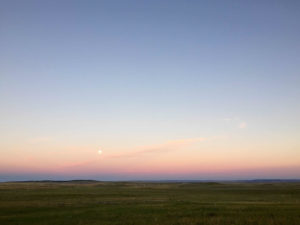Arguably the most pressing issue we face today as a society is climate change. OK, actually it is the the most pressing issue, no  argument needed. But before we go rushing off all willy nilly let’s take a quick look at some of the logistics and scope of climate change and its bedmate energy.
argument needed. But before we go rushing off all willy nilly let’s take a quick look at some of the logistics and scope of climate change and its bedmate energy.
When we say “climate change” we are talking about the global climate. Not just the local weather. While local topography and weather can be divided up into micro climates and zones, and many of those will experience the effects of climate change, the problem of climate change is a global problem. A problem that we should attempt to view as a whole.
How then should we approach climate change and mitigation? First we should examine energy and its role in our lives.Once we have a picture of energy we need to look at the environment and the results of our actions. Then we can look for an area of interest or skill through which we can effect possible change.
Once we have that frame of reference we need to appreciate the role energy, both production and use, has had on human development. As many economists point out, prior to the Industrial Revolution the standard of living for humanity remained basically unchanged for millennia. Then we started to burn coal in an industrial fashion. With that transition brought lights, heat, cooling, refrigerators, and a myriad of technological developments. These advancements have extended human life, increased comfort and our safety.
The majority of human economics is now centered around the production, distribution, and consumption of energy. In the United States the energy industry employees 500,000 workers and makes up 2.3% of GDP. This comes in at a cool $910 billion industry.
On our journey pedaling through Montana studying energy and climate change we’ve interacted with both environmental organizations and energy providers. One of these providers, Northwestern Energy, services much of Montana, a portion of South Dakota and Nebraska. They employ 1,273 workers in Montana and, in all three states, service 700,000 customers through 27,900 miles of electrical lines and 9,575 miles of natural gas pipelines. We are used to just pushing a button or flipping a switch. Energy generation and its surrounding economy are just too big of a portion of the economy to simply alter overnight.
To get there will take years of effort, organization and education. In the Powder River basin in Montana, plans to develop coal reserves that included an entirely new railroad spur have finally, after 40 years, been put to rest. The development of Otter Creek coal and the Tongue River Railroad that would have serviced it were nixed by rapid decline in demand for coal, largely due to cheap natural gas, and staunch opposition from landowners in southeastern Montana. This protects many Northern Cheyenne burial grounds, stops countless tons of CO2 emissions, and protects acres and acres of open pasture land and the water needed for livestock.
An interesting byproduct of this fight has been the building of a community in the Powder River Basin that includes groups that historically have felt at odds. The member-driven Northern Plains Resource Council and organizers such as Alexis Bonogofsky and Mike Scott, over the course of many years, countless meetings (before agencies or over a cup of coffee) brought together ranchers with their desire to protect property rights and maintain grazing and water for their herds, environmentalists, and the Northern Cheyenne to face a common enemy.
North of Billings we find the Charter Ranch. Steve Charter is also a member of NPRC. But he couples his organizational duties with research to look for solution. While fighting to protect his land from undermining on one front, Steve Charter is beginning to experiment with soil betterment in the hope of speeding up plant succession to repair damaged grazing land. That alone is a multifaceted problem he is approaching with composting, vermiculture (worms for us laypeople), and experimental and diverse crops. The end result will hopefully include increased carbon sequestration in the soil, with the twofold effect of CO2 removal and increased productivity
Whew! Climate change is huge, and we didn’t even look at alternative energy. No wonder so many throw up their hands in despair. But if we take a moment and appreciate the scope we can likely find a niche for all of us to fill. Like a giant buffet that we surly can’t eat all of we can defiantly find a plateful to consume.